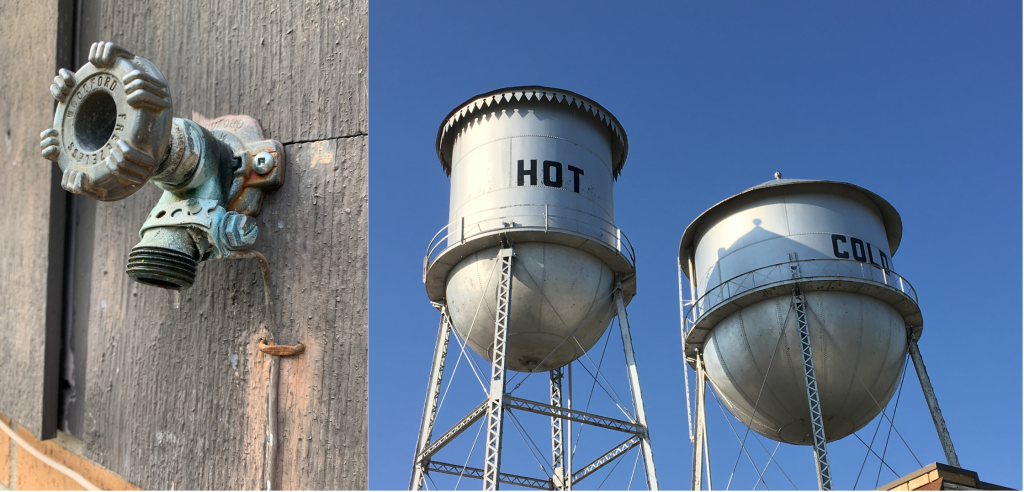
Our current and recent projects on urban water and energy sustainability:
Water and energy sustainability in the built environment: Systems science for the blue city
Water and energy are two vital and highly interconnected resources. We are examining the connection between water and energy at the city scale and residential scale as top-down and bottom-up perspectives for sustainability. At the city scale, we use operational data for water and energy in cities and on the electricity grid to understand holistic resource consumption. At the residential scale, we deploy smart water metering systems to disaggregate water consumption into specific end uses to inform customized conservation and efficiency recommendations.
Funding: National Science Foundation
Effectiveness of feedback in reducing water and energy use in residence hall showers
Showers require significant amounts of water and energy (for water heating) and present opportunities for greater efficiency and conservation. Literature often highlights the importance of financial incentives in promoting conservation behavior; however, students in residence halls lack the financial incentive to change shower durations. We are examining the effectiveness of feedback in promoting water (and associated energy) conservation behaviors in University Housing showers.
Funding: Student Sustainability Committee; Institute for Sustainability, Energy, and Environment
Assessing the feasibility of non-potable water reuse
Reclaimed water from municipal wastewater treatment plants can be a valuable non-potable water resource for meeting demands from agriculture, manufacturing, and power generation. Using various publicly-available data sources, we are assessing the potential supplies and demands for recycled water in the United States, accounting for different state-level policy environments that can help or hinder water reuse. This research supports the development of a reclaimed water market in the United States.
Funding: Illinois Water Resources Center; National Science Foundation Graduate Research Fellowship
Estimating residential hot water use from smart electricity data
Smart electricity meters support analysis of electricity consumption patterns on finer spatial and temporal scales. In a sample of homes with electric space heating, we train and apply a non-intrusive load monitoring algorithm to estimate electricity consumption for water heating at the residential scale. Using these water heating signals, we estimate household hot water consumption in the absence of water meter data.
Funding: Illinois Water Resources Center; Institute for Sustainability, Energy, and Environment
Characterizing the sustainability and embedded energy of the urban water cycle
The urban water cycle does not just include direct fluxes of water; it also requires inputs of indirect or embedded water in resources such as food and energy. Accounting for these indirect and direct fluxes of water and its embedded energy provides opportunities for water and energy benchmarking at the urban scale. Our work provides comparative sustainability analyses of urban environments across the United States.
Funding: National Science Foundation Graduate Research Fellowship; CEE Research Experience for Undergraduates Program
Quantifying the energy-water nexus in the residential sector
An essential component of the urban environment is the residential household. Appliances and fixtures within the home consume water and energy both directly and indirectly. Our work evaluates the
benefits of upgrading to ENERGY STAR or WaterSense appliances in terms of both direct and indirect energy and water savings. This study provides opportunities for conservation programs both at the home and city or utility level.
Funding: Siebel Energy Institute
Modeling and prediction of watershed-scale dynamics of water reuse for power plant cooling
Water reuse can be a sustainable solution for areas with significant non-potable water demand. Cooling power plants with reclaimed water is one such sustainable solution, with different benefits and tradeoffs for local and regional water users. In our work regarding water reuse for power plant cooling, we model local and regional watershed-scale dynamics due to consumption of reclaimed water.
Funding: Illinois Water Resources Center